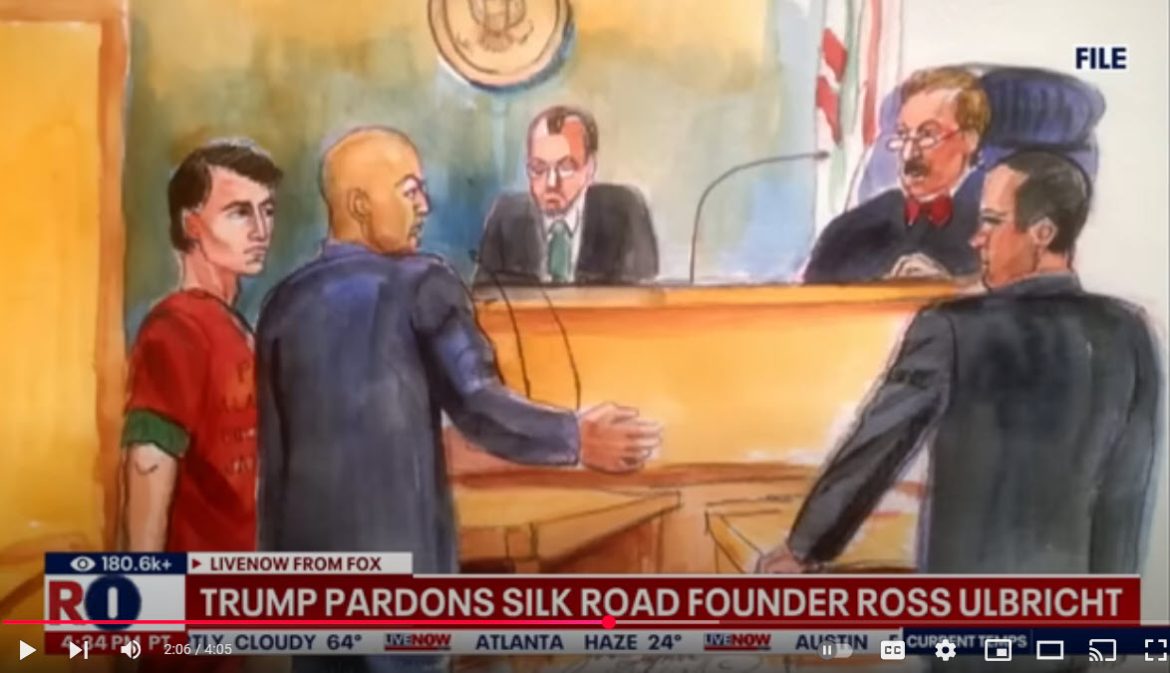In a significant exercise of executive clemency, President Donald Trump has granted a full and unconditional pardon to Ross Ulbricht, the founder of the notorious online marketplace Silk Road. Ulbricht, who had been serving two life sentences plus 40 years without the possibility of parole, was released from federal custody following the pardon.
President Trump announced the pardon on Truth Social, stating, “I just called the mother of Ross William Ulbricht to let her know that in honor of her and the Libertarian Movement, which supported me so strongly, it was my pleasure to have just signed a full and unconditional pardon of her son, Ross.” He further criticized the severity of Ulbricht’s sentence, describing it as “ridiculous.”
Ulbricht was arrested in October 2013 in San Francisco and later convicted in February 2015 on charges including drug trafficking, money laundering, and computer hacking. Operating under the pseudonym “Dread Pirate Roberts,” he facilitated over $200 million in illicit transactions on Silk Road, which primarily dealt in illegal drugs and utilized Bitcoin for payments.
The pardon fulfills a campaign promise President Trump made during the Libertarian National Convention in May 2024, where he pledged to commute Ulbricht’s sentence if elected. The decision has been met with praise from libertarian groups and cryptocurrency advocates, who have long viewed Ulbricht’s punishment as excessive and a symbol of governmental overreach.
Ulbricht’s attorney expressed profound gratitude for the clemency, stating that it corrects a significant injustice. The Libertarian Party also lauded the pardon, emphasizing their stance against the war on drugs and advocating for individual freedoms.
Critics, however, argue that the pardon undermines efforts to combat cybercrime and illegal online activities. They contend that Ulbricht’s actions facilitated widespread drug distribution and posed significant public health risks.
This pardon is part of a series of executive clemency actions taken by President Trump at the outset of his second term, which also included pardoning approximately 1,500 individuals involved in the January 6, 2021, Capitol riot. These decisions have sparked widespread debate and are expected to face legal challenges in the coming months.



